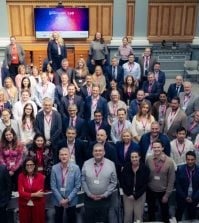Saudi Arabia signs off on Artificial Intelligence policy

King Salman Bin Abdulaziz has approved Saudi Arabia’s Artificial Intelligence (AI) strategy, which is expected to contribute an estimated 500 billion riyals (US$133 billion) to gross domestic product (GDP) by 2030.
The Saudi Data and Artificial Intelligence Authority (SDAIA) was set up by a Royal Decree in August 2019. The organisation oversees the National Data Management Office, the National Information Center and the National Center for Artificial Intelligence.
“Data is the single most important driver of our growth and reform and we have a clear roadmap for transforming Saudi Arabia into a leading AI and data-driven economy,” said Dr Abdullah bin Sharaf Al Ghamdi, president of SDAIA, according to regional news website gulfnews.com.
The country is establishing a national data bank to consolidate more than 80 government datasets, the equivalent to 30 per cent of the government’s digital assets. It is also planning to build one of the largest clouds in the region by merging 83 data centres owned by more than 40 government bodies.
2030 vision
Digitalisation and development of AI is part of Saudi Arabia’s Vision 2030 strategy, launched in 2016. The vision commits to building sustainable cities and communities, improving health and well-being of citizens, improving the quality of education, providing decent work and fostering innovation-driven economic growth.
AI and digitalisation are at the heart of this vision, according to Saudi Arabia’s deputy minister of technology, industry and digital capabilities, Dr Ahmed Al Theneyan. Greater automation will achieve efficiencies in government, he wrote in a blog for WIPO magazine.
The government is undertaking major educational reform to make sure students acquire the digital skills for future jobs in AI and other technologies, such as the Internet of Things (IoT) and Blockchain, he said. The government was working with the ministry of education to match school and university curricula with future needs in areas such as AI, data science and data security.
The kingdom is also building a US$500 billion city called Neom. Covering 26,000 square kilometres, the city will “go well beyond a smart city as we know it today,” by allowing for a new way of life built around technologies including AI, big data and IoT, Dr Al Theneyan wrote.























